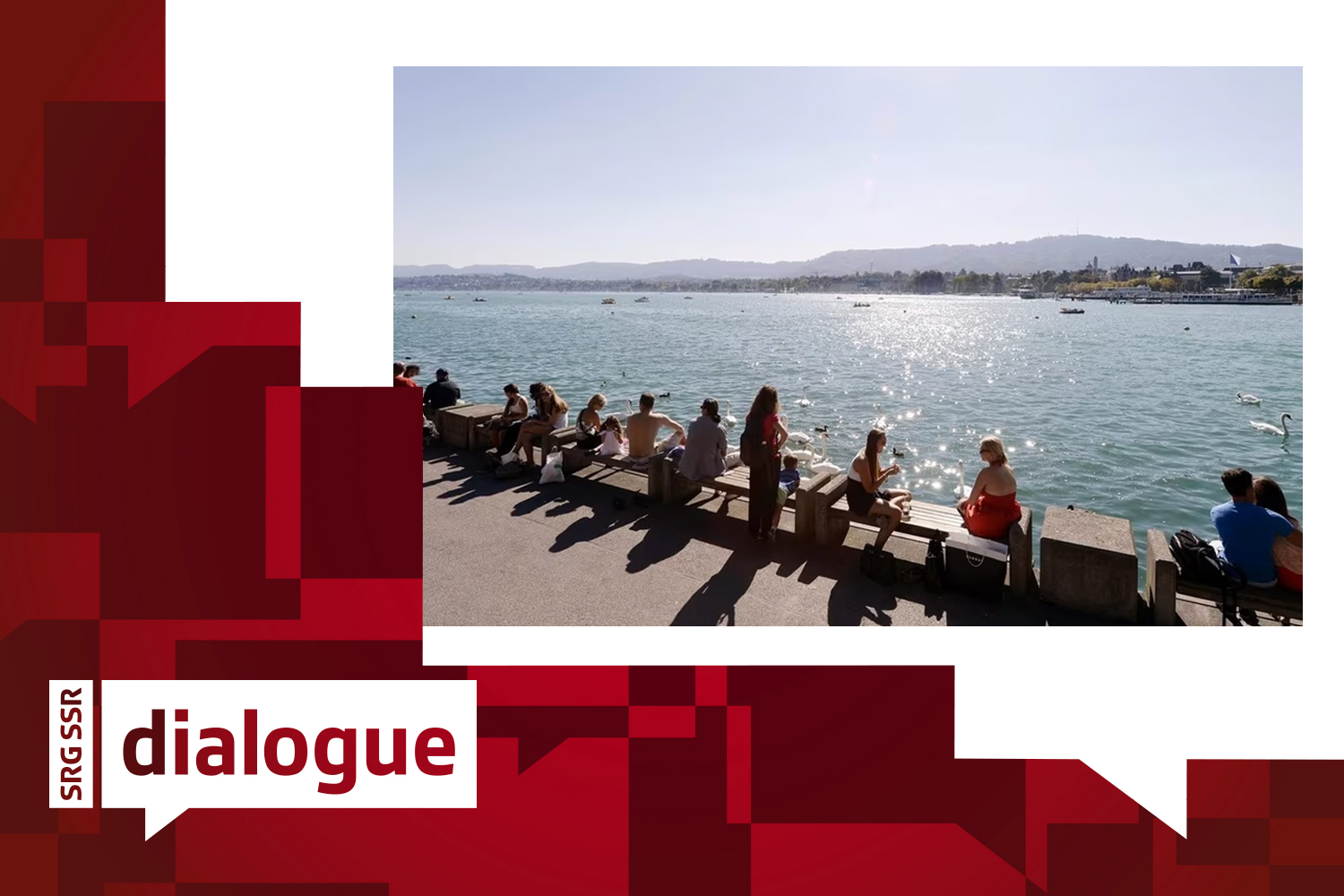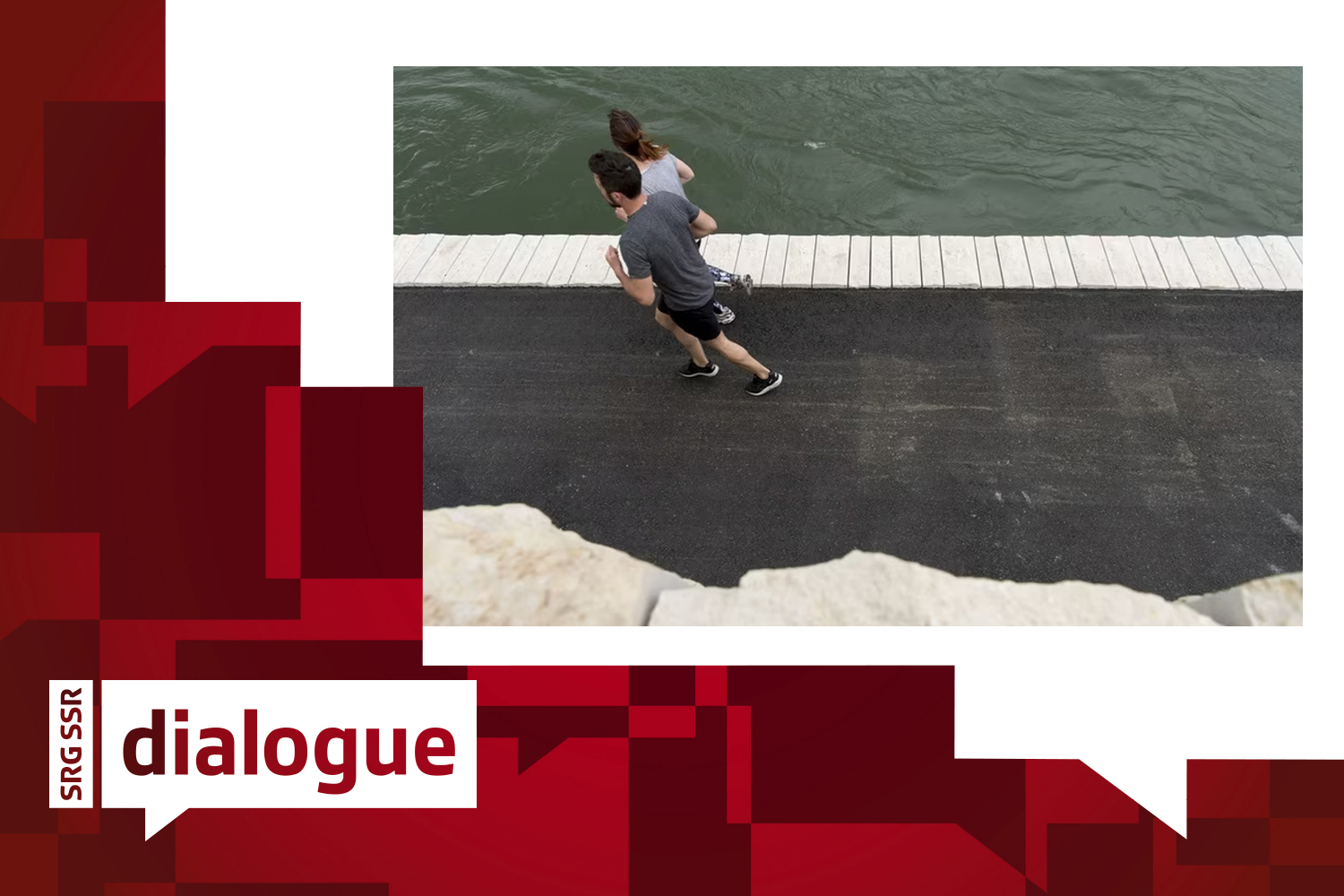An idyll with cracks: a survey on the Swiss state of mind

Switzerland is a country whose inhabitants are generally very satisfied. But there are some worrying cracks in this idyll.
In this election year, the Swiss Broadcasting Corporation (the parent company of SWI swissinfo.ch) wanted to find out how the people of Switzerland and the Swiss Abroad are feeling and what issues worry them. The SBC commissioned the research institute gfs.bern to carry out one of the largest opinion polls ever conducted in Switzerland. Over 57,000 people took part in the survey between April and May of this year.
A total of 61% of the respondents said they are doing “well to very well” (grades eight to ten on a scale of one to ten). Only 5% described themselves as “not satisfied” (grades zero to four). This general sense of satisfaction is mainly fuelled by things going well in their private life. While the respondents dedicated the most amount of time to their jobs, only 37% rated their level of job satisfaction as eight or higher.
Asked what it would take for them to be even happier, most of the respondents said they would like to spend more time outdoors. The other items on their wish list are having more money, more sleep and more time to spend with their family.
The results of the “How’s it going, Switzerland?” survey are based on 57,778 interviews conducted by the gfs.bern research institute between April and May 2023 on behalf of the SBC. A total 2,983 people were selected from an online panel by the research institute in such a way that a representative picture of the Swiss population (16 years and older) emerged. The sample was stratified along the language regions in four languages and quota-stratified along age and gender.
A further 54,795 people completed the questionnaire online. They were invited to do so via the SBC platforms but were free to decide whether they wanted to participate or not. This survey method is not representative. The data quality is created here by means of specific procedures of data weighting and data validation.
The questionnaire contained over 300 questions. To ensure that an interview did not take longer than 20 minutes, roughly, GFS Bern did not ask all respondents the same questions. The sampling error therefore varies depending on the question and the number of answers. With 57,778 interviewees, this amounts to 0.4%; with 6,000 interviewees it is 1.27%; and with 3,000 interviewees it is 1.79%.
Money and loneliness
But there is also a Switzerland where things are not so rosy. Just under a third of respondents said their financial situation is “rather or very” stressful. This is particularly evident in Italian- and Romansh-speaking parts of the country. Their own financial situation and the increasing pressure to perform are the factors that most affect the respondents’ sense of personal happiness.
A fifth of all respondents say they “always or often” feel lonely. And a third feel that the other residents of the country do not share their values. This is particularly common among people with the lowest incomes and among younger people (16–39-year-olds).

More
Swiss Abroad, how are you doing?
Little interest in election issues
According to the survey, the issues that have been the main talking points so far in this federal election year are getting little attention from the general population. Of those surveyed, 61% consider “woke” and “gender” to be pseudo-issues. Immigration, neutrality and gender equality are only somewhere in the middle of the list of issues that people are concerned about. Politically “evergreen” topics, such as the Covid-19 pandemic or the urban-rural divide, are at the very bottom of the list.
The situation is a bit different when it comes to climate change. Of those surveyed, 69% see it as a major problem where there is an immediate need for action. This is even more the case in French-speaking Switzerland than in the other language regions. However, this does not completely translate into a willingness to change one’s own behaviour in order to avoid climate-damaging emissions. The respondents were most willing to cut back on heating, and least willing to cut back on eating meat and driving cars.
Whether for environmental reasons or simply for convenience, 60% of those surveyed let a whole month or more pass before changing their bed linen. In contrast to the other language regions, in German-speaking Switzerland the demands in terms of hygiene are particularly low when it comes to the bedroom. When it comes to their own bodies, however, cleanliness is paramount: more than three quarters shower or bathe daily.

More
Let’s Talk: Are the Swiss really satisfied?
Low trust in politicians
A clear majority of respondents identify strongly with Switzerland. No less than 76% even say that it is the best country in the world to live in. But what exactly makes it Swiss? For a majority, it is not that important whether one was born in Switzerland or which religion they identify with. It is much more important to respect the local institutions and laws or to speak a national language. Direct democracy is a factor that unites the population more than anything else: 98% “fully or somewhat agree” that it is central to Swiss identity.
On the other hand, the respondents were far less positive about their elected representatives. Only 4% were fully convinced that Swiss politicians can be trusted to act in the interests of voters. If one includes those who think this is “rather” the case, it is still less than the majority, at 48%. In addition, 81% think that lobbyists have too much influence in politics.
With “dialogueExternal link” you can experience news and debate in a new way, and discuss relevant topics, whether that’s in a national language or in English. We do the translation work. Every week, an editorial team selects a new topic for you to debate. You will also learn interesting facts from all parts of the country. A tool created on the basis of the nationwide survey “How’s it going, Switzerland?” will show you where you stand on a particular issue compared to survey respondents.
Translated from German

In compliance with the JTI standards
More: SWI swissinfo.ch certified by the Journalism Trust Initiative
You can find an overview of ongoing debates with our journalists here . Please join us!
If you want to start a conversation about a topic raised in this article or want to report factual errors, email us at english@swissinfo.ch.